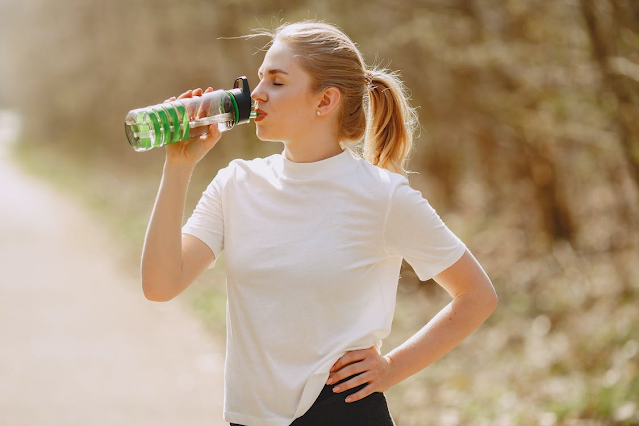I never drink water how am I alive? People tend to avoid water in favor of more tempting beverages, leading them into serious dehydration.
You’re Thirsty
Thirst is your body's way of telling you it needs water, typically marked by dry lips and tongue, parched throat and fatigue or dizziness. It may occur after exercise, spending the day outdoors in hot weather or when awakening in the morning; additionally it is not unusual to feel thirsty after eating certain types of spicy food or before going to sleep as sweating and breathing both contribute to dehydration.
Everyone's bodies experience different periods when they feel thirstier than usual, but if this feeling lasts continuously it could be an indicator of something serious such as medical conditions, hormone changes or chronic issues.
Also read: "This One Trick Drops High Blood Pressure by 32 Points: 3 Life-saving Exercises."
Antipsychotic and diuretics medications, in particular, can induce thirst in the body and may increase your need for fluids - so if you are taking one of these medicines it is essential that you talk to your physician to ensure adequate hydration to avoid dehydration and side effects of this treatment.
Stay Hydrated
Your body needs water when you feel thirsty; that doesn't need to be seen as something negative! Staying hydrated is crucial for good health and there may be telltale signs you aren't drinking enough: dry or sticky mouth; dark urine output; headaches, fatigue or low energy.
Drinking enough water is essential to maintaining a healthy lifestyle, and you should listen to what your body tells you to drink. Aim for at least 8 cups a day but the exact amount can depend on many factors including where you live and your activity levels; food can also influence this amount, with certain ingredients like salt pulling more fluid out of cells than usual and necessitating additional hydration intake afterwards.
If you find yourself craving water excessively, this could be a telltale sign of more serious illness or medication use. Before making any drastic decisions or changes to your regimen, consult with a medical practitioner as they can determine whether your thirst stems from illness or prescription.
You Need Fluid
The sensation of thirst is an essential indicator from the body that it needs fluids; it should prompt us to reach for water bottles or glasses of liquid as soon as it appears on our lips. Unfortunately, some individuals seem immune from feeling thirsty at all; in such instances medical advice should be sought immediately. If your thirst remains unquenched despite best intentions then seek medical advice immediately as this could indicate serious problems requiring immediate action.
Lori Cheek of New York doesn't enjoy drinking water and often winds up at emergency rooms with severe dehydration. She blames this aversion on Fela Anikulapo Kuti's song, "Water No Get Enemy." According to experts, it is likely she suffers from primary polydipsia which is treatable easily.
Your body may be telling you something is amiss when it doesn't feel thirsty: this could be because a part of the brain called lamina terminalis controls water and salt responses; when this part is altered by manipulation, animals either consume more water when well hydrated, or drink it even though their system needs no improvement! Being severely dehydrated is serious business that may lead to long-term health issues; pay attention to what signals your body sends!
Are You Feeling Parched?
Feeling parched could be caused by any number of reasons, from illness to environmental factors such as hot weather. If you find yourself thirsty often it would be wise to consult a professional as soon as possible - for medical issues consult with your GP, while nutritionists or personal trainers could offer insight into lifestyle factors which could be contributing.
One of the primary causes of thirstiness in people today is due to insufficient water consumption. Our bodies lose significant quantities through sweat and physical activities. To combat this issue, it would be prudent to carry around a bottle of water during your day so you can drink when thirst strikes.
People can also feel thirsty as a side effect of certain medications they are taking, especially antidepressants, anti-seizure drugs and painkillers. If this is the case for you, speak to your physician.


Post a Comment